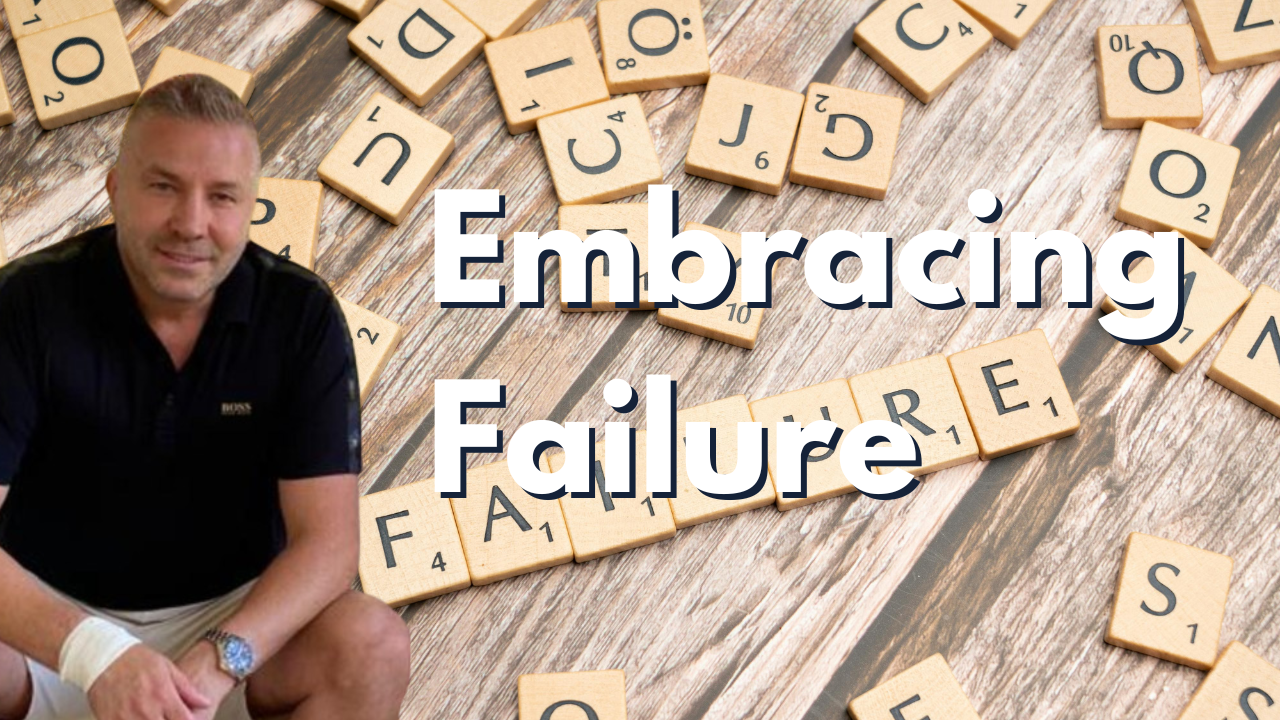
Failure is often viewed as a negative outcome, something to be avoided at all costs. However, for many successful individuals, failure is not only inevitable but also a necessary stepping stone on the path to success. In this blog post, we’ll explore the concept of embracing failure, discuss why it’s essential for personal and professional growth, and provide strategies for turning setbacks into opportunities for success.
Understanding the Role of Failure:
- Learning Opportunity: Failure provides invaluable lessons that cannot be learned through success alone. When we fail, we have the opportunity to reflect on our actions, identify what went wrong, and learn from our mistakes. These lessons help us develop new skills, refine our strategies, and become more resilient in the face of future challenges.
- Resilience and Persistence: Failure builds resilience—the ability to bounce back from setbacks stronger than before. When we experience failure, we are forced to confront our fears and insecurities, and develop the resilience to persevere in the face of adversity. This resilience is essential for achieving long-term success, as it allows us to overcome obstacles and continue moving forward, even when the going gets tough.
- Innovation and Creativity: Some of the greatest innovations and breakthroughs have come as a result of failure. When our initial ideas or approaches don’t work out as planned, we are forced to think outside the box, explore new possibilities, and innovate in ways we may not have considered otherwise. Failure sparks creativity and pushes us to explore new paths and solutions to achieve our goals.
- Humility and Growth Mindset: Failure humbles us and reminds us that we are not infallible. It encourages us to adopt a growth mindset—the belief that our abilities and intelligence can be developed through effort and perseverance. With a growth mindset, we embrace challenges, seek out feedback, and view failure as an opportunity for growth rather than a reflection of our worth or abilities.
Strategies for Embracing Failure:
- Reframe Your Perspective: Instead of viewing failure as a final outcome, reframe it as a temporary setback or learning opportunity. Recognize that failure is a natural part of the learning process and an essential stepping stone on the path to success. By reframing your perspective, you can approach failure with a sense of curiosity and resilience, rather than fear or defeat.
- Analyze and Learn from Failure: When faced with failure, take the time to analyze what went wrong and extract the lessons learned. Ask yourself what you can do differently next time, what you’ve learned about yourself or your approach, and how you can apply these insights to future endeavors. By embracing failure as a learning opportunity, you can turn setbacks into opportunities for growth and improvement.
- Seek Support and Perspective: Don’t be afraid to reach out for support and perspective when faced with failure. Whether it’s seeking feedback from mentors, peers, or trusted advisors, or simply talking through your experiences with friends or family, gaining outside perspective can help you gain clarity and insight into your situation. Surround yourself with a supportive network of individuals who can offer encouragement, guidance, and constructive feedback to help you navigate through failure.
- Practice Self-Compassion: Be kind to yourself when faced with failure. Avoid self-criticism or negative self-talk, and instead practice self-compassion—the act of treating yourself with kindness and understanding, especially in times of difficulty or failure. Recognize that failure is a normal part of the human experience, and that experiencing setbacks does not diminish your worth or potential for success.
- Take Action and Keep Moving Forward: Finally, don’t let failure paralyze you or prevent you from taking action. Instead, use failure as fuel to propel you forward and motivate you to keep pursuing your goals. Take concrete steps to address the factors that contributed to failure, adjust your approach as needed, and continue moving forward with determination and resilience. Remember that success is not defined by the absence of failure, but by the ability to learn, adapt, and persevere in the face of challenges.

Conclusion: Embracing failure is essential for personal and professional growth. By reframing your perspective, analyzing and learning from failure, seeking support and perspective, practicing self-compassion, and taking action to move forward, you can turn setbacks into stepping stones for success. Remember that failure is not the end of the road, but rather a natural part of the journey toward achieving your goals and realizing your full potential. By embracing failure and viewing it as an opportunity for growth and learning, you can cultivate resilience, creativity, and perseverance, and ultimately achieve greater success in all areas of your life.

